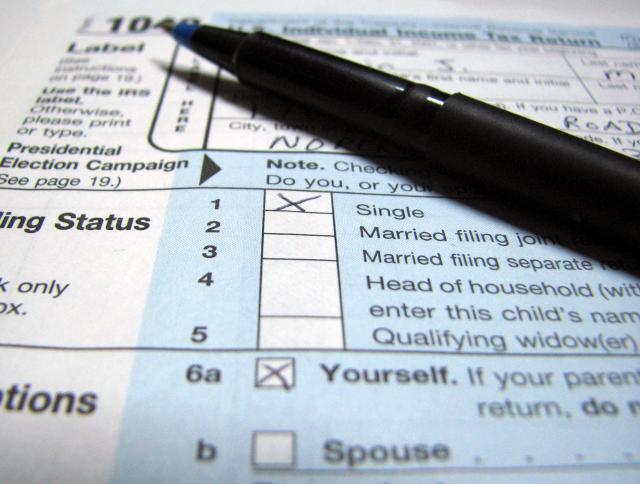Itemized tax deductions are a great way for high-income taxpayers to lower their taxable income and reduce their tax liability. They allow you to deduct certain expenses that you wouldn’t otherwise be able to deduct using the standard deduction. Below, we’ve broken down what itemized tax deductions are, how to take advantage of them, the benefits and drawbacks of itemizing your return, and some of the most common itemized tax deductions that are available.
What are Itemized Tax Deductions?
Itemized tax deductions are specific expenses the IRS allows taxpayers to deduct from their taxable income. To take advantage of itemized deductions, a taxpayer must choose to itemize their deductions instead of taking the standard deduction. The standard deduction is a flat dollar amount taxpayers can claim on their tax returns without itemizing their deductions. The standard deduction amount changes yearly and is based on the taxpayer’s filing status. We’ve outlined the standard deduction amounts for 2022 and 2023 below:
| Filing Status | 2022 Standard Deduction | 2023 Standard Deduction |
| Single | $12,950 | $13,850 |
| Married, Filing Separately | $12,950 | $13,850 |
| Married, Filing Jointly | $25,900 | $27,700 |
| Head of Household | $19,400 | $20,800 |
How to Take Advantage of Itemizing Your Tax Return
If you’d like to itemize your tax deductions, you need to keep detailed records of your expenses throughout the year. This includes receipts, invoices, bank statements, and any other documentation that can prove an expense was incurred. This information is necessary to support your itemized deductions when you file your tax return and in the event, you are audited by the IRS.
Another important factor to consider is that certain expenses have thresholds that must be exceeded before they can be deducted. For example, medical expenses are only deductible if they exceed 7.5% of your adjusted gross income (AGI). Charitable donations are also subject to limits and can only be deducted if you provide written evidence of the donation.
Once you have all of your expenses documented, a tax professional can determine if itemizing your deductions is more beneficial for you than taking the standard deduction. It’s important to keep in mind that the standard deduction amount increases every year, so you may find that itemizing your deductions is not the right choice for you every year.
The Pros and Cons of Itemizing Your Tax Deductions
Itemizing deductions on your tax return can be a beneficial way to lower your taxable income and reduce your tax liability. However, it’s important to weigh the pros and cons before deciding to itemize your deductions.
Pros
Lower Taxable Income
One of the main advantages of itemizing deductions is that it allows you to lower your taxable income, which may result in a lower tax liability. Before itemizing your return, you should compare your itemized deduction to the standard deduction to see which way will save you the most money.
Specific Deductible Expenses
Itemizing deductions allows you to deduct specific expenses, such as mortgage interest, state and local taxes, charitable donations, and medical expenses. Depending on your lifestyle and expenses, this could present some serious tax savings for you!
Customized Deductions
By itemizing your deductions, you have the flexibility to choose which expenses you want to deduct, which can help you save more on your taxes.
Cons
Record Keeping
In order to itemize your deductions, you must keep detailed records of your expenses throughout the year, which can be time-consuming and tedious.
Limitations
Certain expenses are subject to limits, which means you may not be able to deduct the full amount of your expenses. For example, medical expenses are only deductible if they exceed 7.5% of your adjusted gross income.
Increased Tax Preparation Costs
Itemizing your deductions can be more complex and require more work than taking the standard deduction, which can increase your tax preparation costs if you use a tax professional.
Not Worth the Effort
In some cases, the standard deduction may be higher than the total of your itemized deductions, which means it’s not worth the effort to itemize your deductions.
What Can You Write off When Itemizing Deductions?
Itemized tax deductions allow individuals to claim specific expenses in order to lower their taxable income and reduce their tax liability. Some of the most common itemized tax deductions include:
Mortgage Interest
Homeowners can deduct mortgage interest incurred on their primary residence, as well as a second home, on their tax return if they itemize their deductions.
State and Local Taxes
State and local taxes, such as income, property, and sales taxes, can be deducted on a tax return if you itemize your deductions. However, there is a limit to the amount of state and local taxes you can deduct.
Charitable Donations
Charitable donations to qualified organizations can be deducted from your taxable income. This includes cash and non-cash donations, such as clothing and household items.
Medical and Dental Expenses
Medical and dental expenses, such as doctor and hospital bills, can be deducted from a tax return if they exceed 7.5% of your AGI.
Job-Related Expenses
Job-related expenses, such as union dues, job search expenses, and work-related education expenses, may be deducted from your tax return if you itemize your deductions.
Casualty and Theft Losses
If you have suffered a loss due to a natural disaster or theft, you may be able to deduct the loss on your tax return if you itemize your deductions.
Investment Expenses
Investment expenses, like investment management fees, safe deposit box rental, and other investment-related expenses, can be deducted when you itemize your deductions.
When deciding whether or not you should itemize your deductions, it’s important to consider the alternative minimum tax (AMT). The AMT is a tax system that limits the amount of money you can deduct from your tax return and has the potential to increase your tax liability, even for filers who decide to itemize their return
How Can I Itemize My Deductions?
If you’re looking to start itemizing your tax return instead of taking the standard deduction, you’ll probably want the help of a trusted CPA. After all, itemizing your return is a bit more complicated, so having the help and oversight of a trusted professional is key.
D&M Accounting has been helping its customers itemize their returns since its inception. Our friendly staff of CPAs has decades of collective experience in the tax space and would love to help you with your tax needs. To schedule an appointment with one of our CPAs, just visit our website or give us a call today at 262-253-9955!


